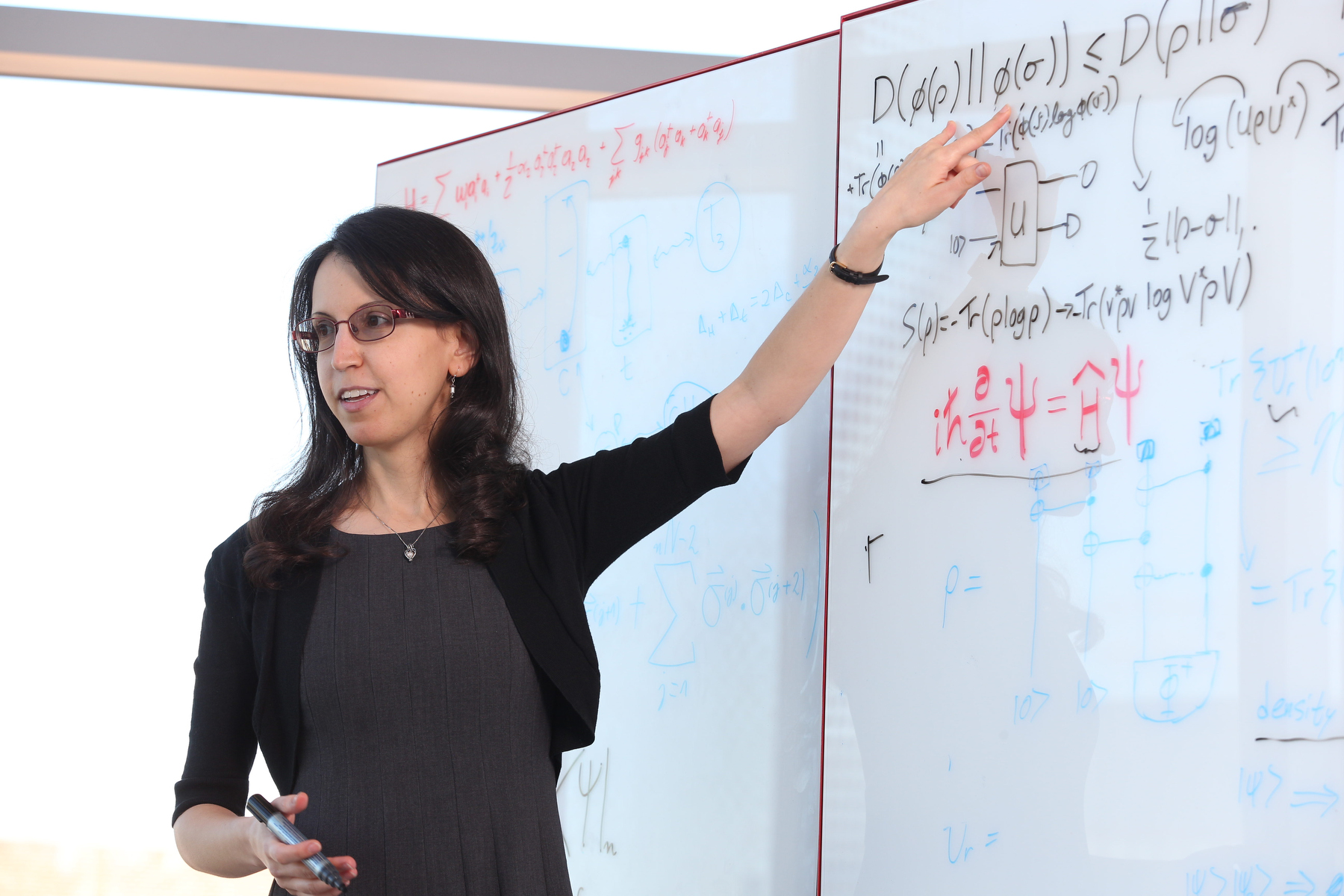Adjunct Assistant Professor and Joint Quantum Institute affiliate Nicole Yunger Halpernis the 2023 U.S. nominee for the Asia-Pacific Economic Cooperation (APEC) Science Prize for Innovation, Research and Education (ASPIRE), an annual prize for young researchers that is awarded by the APEC trade organization. Yunger Halpern’s nomination by the State Department’s Office of Science and Technology Cooperation comes with its own $3,000 prize. 
“I'm extremely grateful to NIST and the University of Maryland for their support for my work,” says Yunger Halpern, who is also a Fellow of the Joint Center for Quantum Information and Computer Science, a physicist at the National Institute of Standards and Technology, an adjunct assistant professor of the Institute for Physical Sciences and Technology, a member of the NSF Quantum Leap Challenge Institute for Robust Quantum Simulation, and a founding member of the Maryland Quantum-Thermodynamics Hub.
Yunger Halpern leads a theoretical research group that is modernizing thermodynamics, which traditionally describes large things like steam engines. Her team uses the tools of quantum information theory to make a theory of quantum thermodynamics that describes small things like individual molecules and the qubits that are the basic building blocks of quantum computers. She applies her quantum thermodynamics perspectives to problems from a broad range of fields, including atomic, molecular, and optical physics; condensed matter physics; chemistry; high-energy physics; and biophysics.
In addition to the U.S., APEC comprises 20 other members, including Australia, Russia, Taiwan and Chile. Each member can nominate one individual under 40 years old for the award, and the ASPIRE winner will receive a prize of $25,000.
This year the U.S. is hosting the APEC meeting that will include the ASPIRE award ceremony. As host, the U.S. selected the ASPIRE Prize theme for this year’s competition to be “Inclusive Science, Technology, and Innovation for a Resilient and Sustainable Environment.” Nominees are selected based on criteria including how their work contributes to the annual theme, their history of scholarly publications and their commitment to inclusive and interdisciplinary collaborations with scientists from other APEC regions.
Story by Bailey Bedford